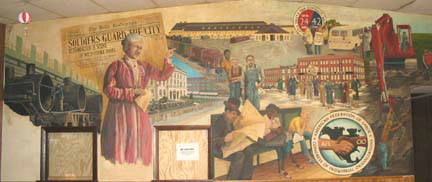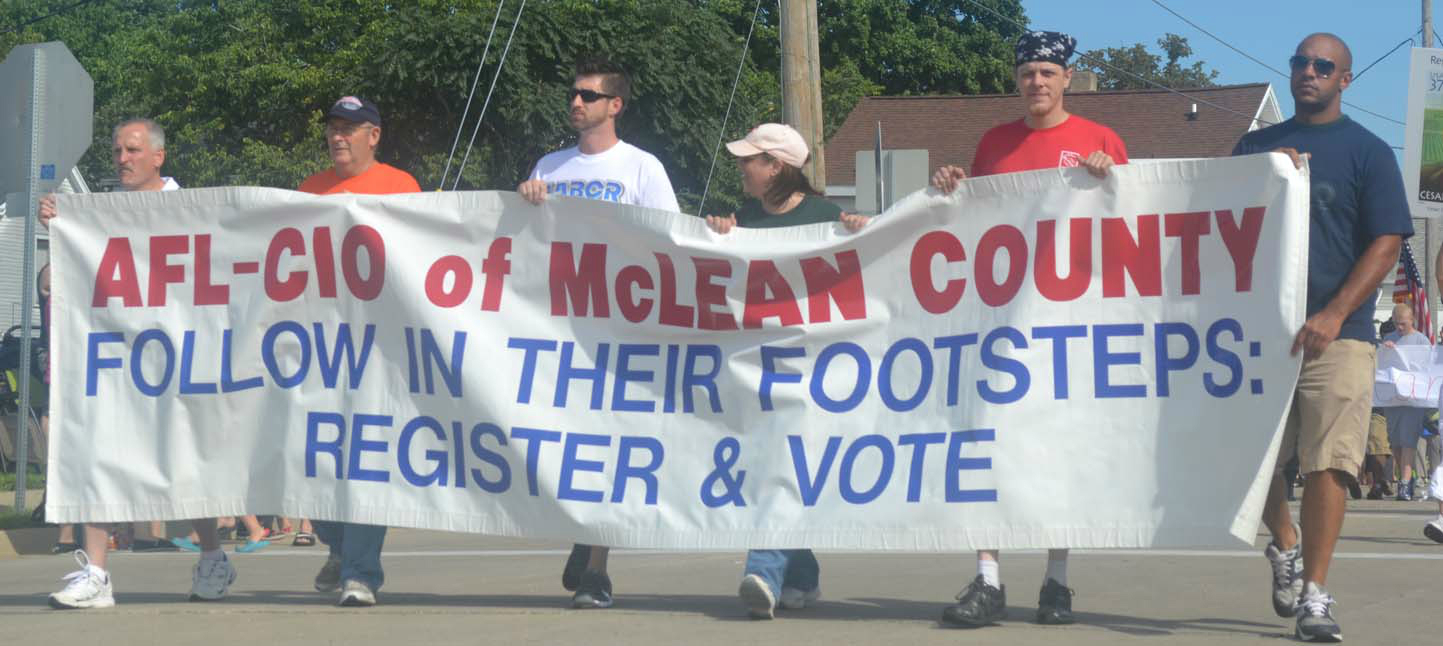|
For me—a former organizer and now labor studies professor—the narrative that Trump was carried to victory last week on the broad shoulders of the white working class has been especially painful. But it is more or less true.
That they came to see Donald Trump—a racist, Islamophobic, misogynist, xenophobic, bloviating billionaire charlatan—as their best option indicates just how alienated they feel from Hillary Clinton and the Democratic Party. That much is clear. The Democratic Party long ago since ceased to be the party of the American working class.
Unions, more than any other institution of American life, have been the vehicles through which working-class people, often across boundaries of gender, race, and ethnicity, have organized to have their say, assert their power, and ensure their share of the economic pie.
With the decline of manufacturing, workers no longer inherited union membership when they arrived at the shop. Instead unions had to undertake massive new organizing in other sectors of the economy. But employers resisted them at every turn and repeated attempts at labor law reform fell short. Attempting to organize a union often got workers harassed, threatened, fired, or deported. Even when they won elections, many employers just refused to come to the bargaining table until the clock ran out.
Going on strike got workers locked out and permanently replaced. Between 1978 and 2000, the unionization rate among workers with high school degrees fell from 37.9 percent to 20.4 percent.
The Democratic Party, hugely reliant on union money and volunteers, fell increasingly in thrall to the corporate elite and the free trade consensus. It seldom made defending the right to organize a priority in recent years. Today unions represent just 6.7 percent of private-sector workers, and the forces of the right are tireless in their effort to consign public-sector unions to the same fate.
Grover Norquist, one of the top strategists of the conservative movement since the Reagan era, wrote after the election of George W. Bush that in order to maintain Republican control, the Bush administration needed to gut unions.
ALEC (the American Legislative Exchange Council), the powerful think tank that formulates and promotes corporation-friendly conservative legislation at the state level, embraced the anti-union agenda, crafting and disseminating bills to cripple public-sector unions.
While corporate profit margins are at an all-time high, wages are at an all-time low.
Unions and collective bargaining tend to raise the pay of less educated employees in lower-paid occupations, thereby reducing pay differentials and income inequality.
Just when we need them most, the main institutions that have fought for decent jobs are a shadow of their former selves. Unions that have played a singular role in forging solidarity across racial, ethnic, and gender lines can now do so only for a diminishing number of Americans. Adding insult to injury, it is not just the right that has hastened their demise; liberals have been dismissing unions for years.
Unions are critical to the functioning of our democracy because of the role they have played in shaping working-class political consciousness and ideology. It has been largely through unions that American workers have developed an understanding of which side of the fence they are on, who is there with them, and who is on the other side.
Of course they have had stiff competition, especially in recent years, from Fox News, Breitbart, the National Rifle Association, and now from Donald Trump. But this is precisely the reason it is so important for them to have the rights and the resources to organize and build real local structures.
Union locals were once citizenship schools for the working class. When unions were weakened, working-class people lost a central means through which they could develop an understanding of the world—of who was to blame for the decline in their standard of living and how to take action to correct it.
Working-class people of all races and ethnicities have reason to be furious. Both liberals and the right have been dismissing unions for years.
By Janice Fine
Excerpted from the
Boston Review,
In the absence of unions, no other institutions have arisen that have elevated the voice, needs, and aspirations of working-class people and organized at the scale they once achieved. In the absence of collective institutions, people have been known to look to charismatic men who promise to make their countries great again.
|



